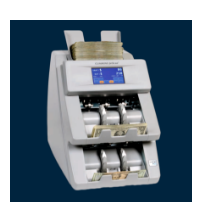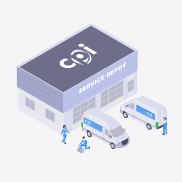Whether you're seeking routine maintenance, specialized testing, or emergency repairs, your choice of field service partner can significantly impact your business’s operational efficiency and, consequently, bottom line. The search for the right partner, however, requires more than a cursory glance. It demands a strategic approach, one that involves asking the right questions to ensure a seamless and productive collaboration.
In this comprehensive guide, we'll delve into the ten key questions you should ask when evaluating potential field service partners. From understanding their service offerings to assessing their training programs and technological prowess, these questions are designed to empower you to make informed decisions that align with your business goals.
Here’s a look at the questions you need to ask in order to find a field service partner that not only meets but exceeds your expectations.
1. What Services Do You Offer?
When evaluating potential field service partners, consider the breadth and depth of their service portfolio. Look beyond basic offerings and assess whether they specialize in areas relevant to your industry. For instance, if you’re in manufacturing, a partner with expertise in equipment maintenance and repair might be useful. Doing so will ensure their services align with your specific needs and challenges.
2. Can You Provide References or Case Studies?
Request real-world examples to gauge the provider’s track record. References and case studies offer insights into their problem-solving capabilities and adaptability, so look for success stories relevant to your industry. Additionally, assess their transparency—partners willing to showcase past successes demonstrate confidence in their abilities.
3. How Do You Ensure Technician Competency and Training?
Inquire about the provider’s training programs and certifications. A highly skilled workforce is essential for quality service, so ask if technicians receive ongoing training to stay current with industry advancements and standards. A commitment to continuous learning ensures competent and reliable field personnel.

4. What Technologies and Tools Do You Use?
Investigate the role of technology within their field services organization by inquiring about the tools and software they employ. Efficient scheduling, real-time communication, and data analytics are critical and it’s important you understand how they leverage technology to provide accurate and timely solutions.
5. How Do You Handle Emergency Situations?
A reliable partner should have well-defined protocols for unforeseen circumstances. Ask about their response time, availability, and effectiveness during critical situations as well as if they have contingency plans for minimizing downtime.
6. What is Your Geographic Coverage?
If your business operates in multiple regions or countries, inquire about their reach and scalability. Discuss potential challenges they may face in specific geographical areas (e.g., remote locations, international sites) to ensure they can support your entire footprint.
7. How Do You Ensure Data Security and Compliance?
Data security is paramount, so be sure to discuss their approach to safeguarding sensitive information during field services. Inquire about encryption, access controls, and compliance with industry regulations (e.g., GDPR, HIPAA). Having this information will help you avoid legal and operational risks by partnering with providers who prioritize data protection.
8. What is Your Pricing Structure?
Transparency in pricing is essential. Understand their pricing model - whether it’s based on service hours, project scope, or other factors. Also, inquire about any potential hidden costs (e.g., travel expenses, after-hours rates) as well as customization options that allow alignment with your business needs.
9. How Do You Measure and Report Performance?
Discuss key performance indicators (KPIs) used by the provider. Metrics like response time, resolution rate, and customer satisfaction provide insights into their performance and help you understand the quality and efficiency of their service.
10. What Support and Communication Channels Are Available?
Inquire about customer support channels. Whether it’s phone, email, or a dedicated portal, ensure timely assistance during service requests. Also be sure to discuss communication protocols - both during and after service visits. Transparency in updates and issue resolution fosters a strong partnership.

As you embark on this journey, keep in mind that the right field service partner is not just a service provider but an extension of your team - a strategically committed to enhancing your operational efficiency and overall success. By asking these critical questions, you not only gain insights into the provider's capabilities but also establish a foundation for open communication and transparency.
Armed with this strategic guide, you are now well-equipped to navigate the complexities of selecting a field service partner that will not only meet but exceed your expectations. Stay diligent, ask the right questions, and choose a partner that will contribute to the continued success and growth of your business.













